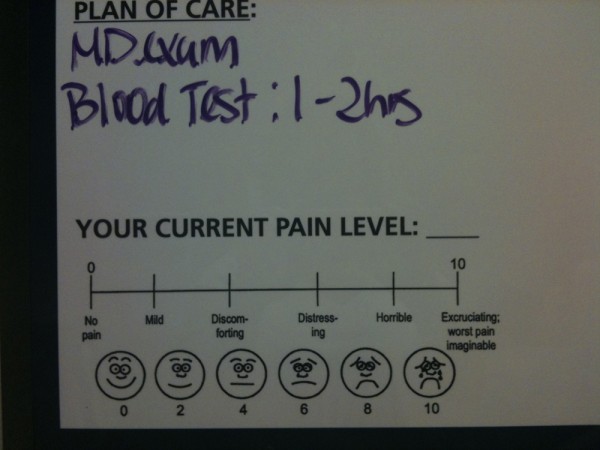Part 2- Health and Sociology- The Social Construction of Health
Part 2- Health and Sociology – The Social Construction of Health
If sociology is the systematic study of human behavior in society, medical sociology is the systematic study of how humans manage issues of health and illness, disease and disorders, and healthcare for both the sick and the healthy. Medical sociologists study the physical, mental, and social components of health and illness. Major topics for medical sociologists include the doctor/patient relationship, the structure and socioeconomics of healthcare, and how culture impacts attitudes toward disease and wellness.
The social construction of health is a major research topic within medical sociology. At first glance, the concept of a social construction of health does not seem to make sense. After all, if disease is a measurable, physiological problem, then there can be no question of socially constructing disease, right? Well, it’s not that simple. The idea of the social construction of health emphasizes the socio-cultural aspects of the discipline’s approach to physical, objectively definable phenomena. Sociologists Conrad and Barker (2010) offer a comprehensive framework for understanding the major findings of the last fifty years of development in this concept. Their summary categorizes the findings in the field under three subheadings: the cultural meaning of illness, the social construction of the illness experience, and the social construction of medical knowledge.
The Cultural Meaning of Illness
Many medical sociologists contend that illnesses have both a biological and an experiential component, and that these components exist independently of each other. Our culture, not our biology, dictates which illnesses are stigmatized and which are not, which are considered disabilities and which are not, and which are deemed contestable (meaning some medical professionals may find the existence of this ailment questionable) as opposed to definitive (illnesses that are unquestionably recognized in the medical profession) (Conrad and Barker 2010).
For instance, sociologist Erving Goffman (1963) described how social stigmas hinder individuals from fully integrating into society. In essence, Goffman (1963) suggests we might view illness as a stigma that can push others to view the ill in an undesirable manner. The stigmatization of illness often has the greatest effect on the patient and the kind of care he or she receives. Many contend that our society and even our healthcare institutions discriminate against certain diseases—like mental disorders, AIDS, venereal diseases, and skin disorders (Sartorius 2007). Facilities for these diseases may be sub-par; they may be segregated from other healthcare areas or relegated to a poorer environment. The stigma may keep people from seeking help for their illness, making it worse than it needs to be.
Contested illnesses are those that are questioned or questionable by some medical professionals. Disorders like fibromyalgia or chronic fatigue syndrome may be either true illnesses or only in the patients’ heads, depending on the opinion of the medical professional. This dynamic can affect how a patient seeks treatment and what kind of treatment he or she receives.
The Social Construction of the Illness Experience
The idea of the social construction of the illness experience is based on the concept of reality as a social construction. In other words, there is no objective reality; there are only our own perceptions of it. The social construction of the illness experience deals with such issues as the way some patients control the manner in which they reveal their diseases and the lifestyle adaptations patients develop to cope with their illnesses.
In terms of constructing the illness experience, culture and individual personality both play a significant role. For some people, a long-term illness can have the effect of making their world smaller, more defined by the illness than anything else. For others, illness can be a chance for discovery, for re-imaging a new self (Conrad and Barker 2007). Culture plays a huge role in how an individual experiences illness. Widespread diseases like AIDS or breast cancer have specific cultural markers that have changed over the years and that govern how individuals—and society—view them.
Today, many institutions of wellness acknowledge the degree to which individual perceptions shape the nature of health and illness. Regarding physical activity, for instance, the Centers for Disease Control (CDC) recommends that individuals use a standard level of exertion to assess their physical activity. This Rating of Perceived Exertion (RPE) gives a more complete view of an individual’s actual exertion level, since heartrate or pulse measurements may be affected by medication or other issues (Centers for Disease Control 2011a). Similarly, many medical professionals use a comparable scale for perceived pain to help determine pain management strategies.
 The Mosby pain rating scale helps health care providers assess an individual’s level of pain. What might a symbolic interactionist observe about this method? (Photo courtesy of afelus)
The Mosby pain rating scale helps health care providers assess an individual’s level of pain. What might a symbolic interactionist observe about this method? (Photo courtesy of afelus)
The Social Construction of Medical Knowledge
Conrad and Barker show how medical knowledge is socially constructed; that is, it can both reflect and reproduce inequalities in gender, class, race, and ethnicity. Conrad and Barker (2011) use the example of the social construction of women’s health and how medical knowledge has changed significantly in the course of a few generations. For instance, in the early nineteenth century, pregnant women were discouraged from driving or dancing for fear of harming the unborn child, much as they are discouraged, with more valid reason, from smoking or drinking alcohol today.[1]
Summary
Medical sociology is the systematic study of how humans manage issues of health and illness, disease and disorders, and healthcare for both the sick and the healthy. The social construction of health explains how society shapes and is shaped by medical ideas. 7
Review Question:
1) Which areas of social science are most closely aligned with the field of health?
-
- Anthropology and political science
- Psychology and sociology
- Economics and political science
- History and psychology
